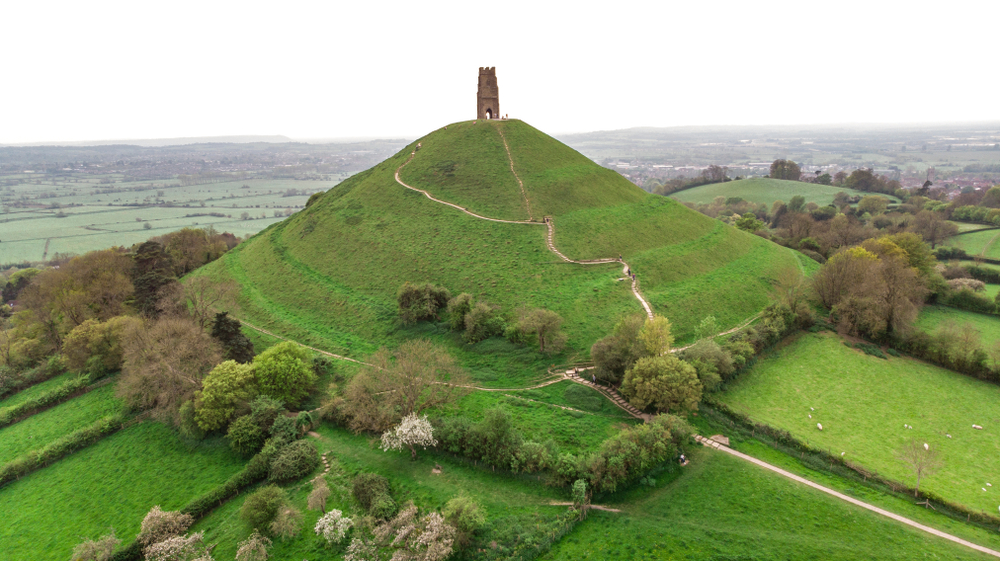Religion: Folk and Traditional Religions
Paganism
Introduction: Paganism is a polytheistic religion based on the worship of various gods and goddesses, spirits, and ancestors. Paganism places a strong emphasis on the natural world and includes elements of animism, where all things in nature are thought to have a spirit. Pagan beliefs in the United Kingdom (UK) long predate the sixth century-arrival of Christianity.
Origin: Paganism is rooted in the pre-Christian beliefs of Germanic migrants to the United Kingdom and various other native groups. Over time, these beliefs and practices became blended with Christian elements, particularly following the widespread adoption of Christianity in the UK in the sixth century.
History: Paganism flourished in pre-Christian times, with temples and shrines dedicated to various gods and goddesses. The United Kingdom's pagans place a strong emphasis on the natural world, which many people were tied to through agricultural practices.
Adherents: There are no official statistics on the number of adherents to paganism, though historically, most of the United Kingdom held pagan beliefs and practiced traditions passed down through the generations. Modern pagan practices in the United Kingdom include Wicca, druidry, and heathenry. The exact number of pagan adherents in the UK is unknown, but it is estimated to be in the tens of thousands.
Belief System: Paganism is a polytheistic religion that centers on the worship of various gods and goddesses, spirits, and ancestors. These deities are believed to inhabit elements of the natural world and have the power to influence human affairs. The religion also places a strong emphasis on the interconnectedness of all things and the importance of balance and harmony in life.
Practices: Pagan practices can be both public and private. Public rituals are often held on seasonal holidays, such as the summer solstice or the winter solstice. Private practices may include meditation, spellcasting, and divination. Pilgrimages to sacred sites may be a practice among pagans.
Rituals, Events, Celebrations
- Samhain: Samhain marked the end of the year and harvest season. Recognized on October 31, Samhain honored ancestors and included feasting and dancing. The border between the living and dead was thought to be thin at this time, and rituals included wearing animals masks or other costumes to confuse evil spirits who may be present and inflict harm.
- Beltane: Also known as May Day, Beltane recognized the start of summer and was celebrated with dancing, feasting, and the lighting of bonfires. Pagans believed masculine and feminine energies were united, with Beltane meaning "bright fire" in Celtic and recognizing god Belenus, protector of cattle and bringer of healing and light.
- Imbolc: Held on February 1, Imbolc celebrates the beginning of spring and return of the sun. It is associated with the goddess Brigid, who is associated with healing, fertility, poetry, and learning.
- Yule: This pagan winter festival generally observed on December 21 celebrates the return of the sun and the growing length of each day.
Sacred Texts: Pagans do not have a specific sacred text, but draws on a variety of sources including the United Kingdom's folklore, mythology, and legends.
Places of Worship: Pagans do not have formal places of worship, but may gather in natural settings, such as forests, meadows, and beaches. Adherents may construct shrines and altars in their homes or in natural settings.
Sacred Places: The United Kingdom is home to many ancient sites that are considered sacred by pagan practitioners. These include the megalithic stones at Stonehenge and Avebury, and a supposed link to a fairy realm through a cave located beneath Glastonbury Tor. Stonehenge is generally considered to be a prehistoric temple aligned with the movements of the sun and is the site for seasonal pilgrimages and celebrations.
Leadership Structure: Paganism does not have a formal leadership structure, but may be led by elders or spiritual guides.
Leaders (local) and Dates: N/A
Role in Society: Paganism has linked people in the United Kingdom through its stories, legends, and traditions, adding to the color of the country's character. It recognizes the country's history and practices before the arrival of Christianity, with an emphasis on environmentalism, equality, and personal spiritual growth that has attracted followers from various backgrounds.
Copyright © 1993—2024 World Trade Press. All rights reserved.

 United Kingdom
United Kingdom 
